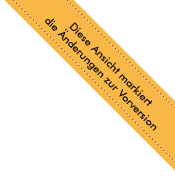Rehabilitation
Compliance rules
0Changes From Previous Versions
No history available so far!
1General information
Rehabilitation is recommended for cancer patients who suffered physical impairments (functional damage) and/or mental stress as a result of cancer or cancer therapy. Germany has several specialized rehabilitation facilities that offer rehabilitation for adolescents and young adults after cancer treatment. Rehabilitation is carried out as inpatient group with a standard duration of 4 weeks and is aimed at improving somatic as well as psychosocial impairments. In addition to an intensive physical training program, psychological support is offered with individual and group interventions (the group functioning as a co-therapist). Specific information is provided on the following topics: cancer disease, fatigue, depression, stress, brooding, cognitive dysfunction, finances, career advice, career choices (with respect to necessary changes in vocational training/studies). In addition to the regular therapy schedule, social workers are available to provide care on evenings and weekends.
2Good to know
2.1What examinations are performed during rehabilitation?
At the start of rehabilitation, secondary disorders, functional limitations and mental stress are to be identified. For this purpose, an initial medical examination, laboratory tests and other technical examinations (if necessary) are performed. Coping with cancer is recorded in all patients by a psychological interview and by questionnaire tests. The current status of self-help competence and any nursing care required is registered by the nursing staff. Functional deficits are identified by physiotherapists and/or occupational therapists. Additionally, a basic sports medical assessment by sport therapists helps in defining goals and existing limitations or risk factors.
2.2What are the goals of rehabilitation?
Initial diagnostics is carried out to define goals, for example:
Physical performance: Improvement of fitness, endurance, mobility and muscle strength
Motivation to intensify physical activities
Mental stabilization, support in cancer coping, strengthening of self-esteem, improvement of self-help ability, quality of life
Nutrition therapy: Information on disease-adapted nutrition
Health information: understanding cancer and its risk factors, instructions for a health-conscious lifestyle
Training of social skills, regaining a daily structure (especially important for younger patients who have to practice "normality" in the group)
Family and social reintegration, reintegration into school, training, studies or work: social counseling, finding a job, training how to apply for a job
In case of permanent physical or psychomental impairments that prevent return to school, training or work: Replanning of school or professional career
Vocational rehabilitation in cooperation with a vocational training facility (if required)
2.3How can the rehabilitation goals be achieved?
The goals previously defined are pursued by different approaches. Standardized and combined muscle training on the device is used for physical reactivation, endurance is trained by ergometer, cross trainer and/or by running, walking or nordic walking. Progress of performance is quantified comparing the numbers at the beginning and at the end of rehabilitation. Additional therapy options for improvement of balance, coordination and mobility include step aerobics, water aerobics, aerofit (group training with gaming elements) and climbing at the climbing wall (=> AYApedia Exercise and Sport). In case of specific limitations, individual therapy will be offered, e.g. physiotherapy, ergotherapy, massages, balneotherapy and other physical procedures. In case of severe functional impairment, specific aids might be recommended.
Group talks and supplementary one-on-one talks help with psychological stabilization. In social counseling, important decisions are made for reintegration into training/studies or work. For more information, see AYApedia Psycho-Oncology.
In case of cancer diseases affecting the digestive system, nutritional advice and/or nutritional therapy are provided. For more information on nutrition after cancer therapy, see AYApedia Nutrition.
Recovery is checked at weekly medical visits (more frequently if necessary). In addition, the therapeutic team meets regularly to review the progress of performance. Current cancer therapy is continued as are wound care, ostomy therapy, parenteral nutrition, catheter care, etc.
2.4When does the socio-medical performance assessment take place?
At the end of rehabilitation, the doctors assess the occupational performance for the last job or another job on the general labor market (assessment of socio-medical performance). Included are possibilities for further training or studies or professional activity. Restrictions that are likely to have a negative long-term impact on studies or work (more than 6 months) are relevant to socio-medical assessment.
2.5What should be considered during reintegration into training and work?
Cancer in adolescence or young adulthood often requires changes in the content and/or timing of the work situation. Reintegration into school, training and/or work after cancer treatment has to consider both somatic and psychosocial aspects. A decision must be made as to whether the previous training (school, apprenticeship or study) or professional activity can be continued, taking into account the physical/psychosocial limitations. In addition to physical factors, obstacles include limitations in memory performance and psychological stress factors. Reintegration should start as early as possible, preferably directly after rehabilitation, as self-confidence, motivation and daily structure achieved should not be lost again. Step-by-step reintegration is a valuable tool in case the patient is in a regular employment. If the patient is still at school, training or studying, depending on the individual circumstances it might be important to define measures to compensate for disadvantages.
3Tips and tricks
3.1How do I apply for rehabilitation?
If rehabilitation starts out directly after surgery, chemo- or radiotherapy in the hospital, it is initiated by the social service staff (follow-up rehabilitation). If rehabilitation is not possible immediately after cancer therapy, an application for rehabilitation can be submitted later with the responsible pension or health insurance company. The application should include a medical statement (e.g. current report of findings, doctor's note or expert opinion) of the attending medical specialist.
3.2Can I do the rehabilitation on an outpatient basis?
Outpatient rehabilitation is possible, but there are only a few facilities that specialize in treating adolescents and young adults. If you live near such a facility, rehabilitation can also be carried out on an outpatient basis.
3.3Can I choose the rehabilitation facility?
According to Section 8 of the Social Security Code IX (Sozialgesetzbuch IX = SGB IX) you have the right to choose the rehabilitation facility. The facility you select must be approved by the German pension insurance for the implementation of oncological rehabilitation in your disease. The social service advises and supports you in choosing the right rehabilitation facility.
3.4How is rehabilitation for adolescents and young adults different from traditional rehabilitation?
Rehabilitation facilities treating adolescents and young adults have developed concepts that are carried out over 4 weeks ("normal" rehabilitation only 3 weeks) in groups of mostly 10-12 participants, aged 16-18 years (adolescents) or 18-32 years (young adults). The respective groups have their own areas, both for treatment and leisure time. Another difference is the more intensive psychological and pedagogical care during leisure time (on evenings and weekends).
3.5Is there a possibility for me as a young mother/father to take my child/children to rehabilitation?
There are rehabilitation clinics that offer rehabilitation for mothers or fathers with accompanying children. Depending on age, your child will be cared for in kindergarten or at school while you are receiving your rehabilitation treatments.
3.6Can I get a second rehabilitation if I have already done one?
If necessary, a second oncological rehabilitation is possible up to the end of the second year after the end of cancer treatment. The medical necessity should be proven with the application by appropriate medical expert opinions/findings reports. In case the German pension insurance is the service provider and you have not permanently retired from working life, it is possible to submit an application for medical rehabilitation every 4 years, provided certain insurance periods have been fulfilled. In urgent medical cases, rehabilitation can also be applied for before the end of 4 years (substantiated justification required from your attending doctor, general practitioner or specialist).
3.7What is the process of professional reintegration? What needs to be taken into account?
In case the previous job can be resumed and re-entry is to take place over several stress levels, gradual reintegration is possible. The workload usually starts with 2-3 hours a day increasing over a period of 4 weeks to the regular full-time job. In case gradual reintegration is to begin within 4 weeks after the end of rehabilitation, the rehabilitation facility can initiate the reintegration. If recovery takes longer, gradual reintegration is initiated by the attending doctor, general practitioner or specialist.
4Further links and information
German Foundation for Young Adults with Cancer
5References
6Gender
Gender terms used in this text represent all gender forms.
8Disclosure of Potential Conflicts of Interest
according to the rules of the supporting professional societies
Download
Reference:
Quellenangabe:
Onkopedia-Leitlinien werden kontinuierlich an den Stand des Wissens angepasst. Die jeweils gültige Version, AGB und Nutzungsbedingungen finden Sie unter www.onkopedia.com.
Für die kommerzielle Nutzung wenden Sie sich bitte an onkopedia@dgho.de.
Onkopedia guidelines are continuously adapted to the state of knowledge. The currently valid version, terms of use and general terms and conditions can be found at onkopedia-guidelines.info.
For commercial use, please contact onkopedia@dgho.de.



